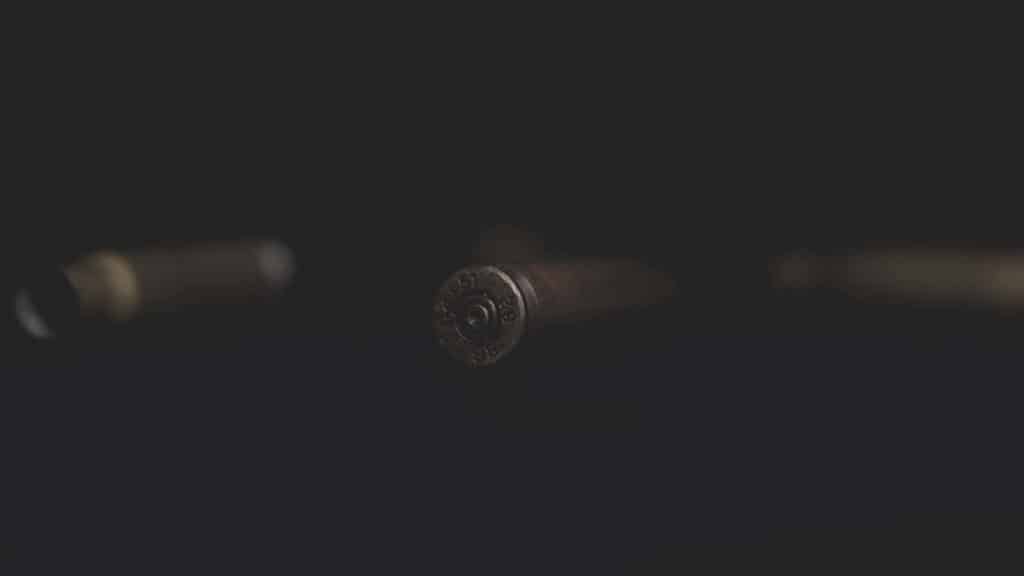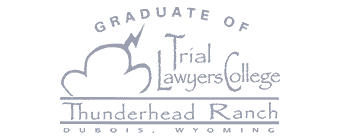Gunshot wounds are often catastrophic injuries, and it can be difficult to heal after such an assault. If you’ve suffered a gunshot wound, call a New Orleans shooting victim attorney for help getting the justice you deserve.
Like many of America’s large cities, New Orleans is far from free of crime and assault. There are myriad reasons a shooting may happen, but what’s important is this: if you are a shooting victim, you deserve justice for your injuries.
Getting that justice doesn’t just mean putting the shooter behind bars. While this will certainly give you peace of mind that you’re safer now, you’ll still have the bills to handle after your assault.
According to a WDSU News release, shooting incidents in New Orleans have increased by 50% in 2021 compared to last year, with fatal shooting incidents increasing by 21%. These numbers not only reflect incidents between law enforcement and criminals - in fact, a lot of shooting victims are civilians, with an infant child being the youngest victim.
If you are a victim of a shooting, regardless of whether you were wounded by a stray bullet or held up at gunpoint in an armed robbery, you deserve justice for the emotional trauma and physical injury you went through. More than that, you also have the right to seek financial compensation for your medical treatment and recovery.
If you’re injured and you need compensation for your injuries, you may need to file a personal injury lawsuit with the help of the New Orleans shooting victim attorneys at Wright Gray.
A New Orleans shooting victim lawyer from our firm can help you fight for the funds you need after you’ve been shot.
New Orleans Shooting Victim Guide
- Different Types of Shooting Incidents
- What You Should Do After A Shooting Incident
- Who Is Liable For Your Shooting Injury?
- Can Shooting Victims File For Personal Injury Claims?
- What Types of Compensation Can You Get as a Shooting Victim?
- Connect with a New Orleans Shooting Victim Attorney
- Contact a New Orleans Shooting Victim Attorney
Different Types of Shooting Incidents
There are many different types of shooting incidents that happen each day around the US. The gravity of the crime depends on how much planning was put into it and if there was an explicit intention to harm or kill others. If you are a victim of a shooting incident, your case may fall under any of the following situations:
Homicide
Last September 10, 2020, Maurice Lumar and 16-year old Jy'Harin Moten left three people dead and wounded two others at a nearby apartment complex in a deadly shooting incident that still baffles law enforcement to this day. Because the motive is still unknown, the two were indicted with 3 counts of second-degree murder and 2 counts of attempted 2nd-degree murder. Although news outlets announced it as a quadruple shooting, the total victim count is five. This quadruple shooting is made even more devastating by the fact that one of the suspects is a minor.
The difference between first-degree murder (or capital murder) and second-degree murder is that premeditation and planning are involved in the first. If premeditation cannot be proven, charges are usually decreased to 2nd-degree murder, even if the motive has not been established fully.
Mass Shooting
Although New Orleans isn't home to the deadliest mass shootings in the US, it has seen its share of violence. Last August 2021, five people were injured in a shoot-out at Bourbon Street. Gun-related violence has increased in New Orleans, and mass shootings are becoming more common. Mass shootings are usually carried out as a form of revenge or as part of their suicide plans.
Armed Robbery or Aggravated Robberies
Business establishments usually fall victim to armed robbers, whose deadly weapon of choice is usually a gun. While the main goal of armed robbery is to steal money, some situations escalate to a point where gunfire causes injuries or fatalities. Usually, these robbers are caught after the fact, thanks to raw video footage from CCTVs.
Manslaughter
The difference between homicide and manslaughter is that the former shows intent to kill, while the latter does not. Because people are allowed to carry registered firearms, it's easy for people to suddenly take out their firearms when threatened or engaged in conflict. Guns have been known to cause injuries and fatalities in situations like road rage, crimes of passion, and self-defense.
What You Should Do After A Shooting Incident
Nobody expects to be involved in a potentially fatal shooting incident. Hence, it is understandable if you don't know how to react to a shooting incident. As spectators watching news outlets, we often lament about how people should have acted in that situation. Of course, the story is different when you're actually experiencing it firsthand. Most people freeze, and they blank out when in danger.
However, there are things that you can do directly afterward that can not only help you survive but get you the compensation you deserve for any physical injuries or emotional trauma that the shooting incident has caused.
Find a Safe Area
Before you do anything else, make sure you are safe and away from harm. If there is an active shooter, it is best to stay hidden as soon as you hear gunshots. If you are a civilian with no training, it's best not to confront the shooter on your own.
Call the Authorities
Call 911 the first chance you get. Dispatchers will ask you questions that you need to answer calmly and reasonably. While experiencing a shootout firsthand can be very nerve-wracking and daunting, you need to stay calm so the operator can get the information they need and send out a dispatch. Rambling and raising your voice may alert the shooter or even cause people around you to panic.
Get Medical Treatment Immediately
In cases where shootouts are involved, an ambulance is usually dispatched to the crime scene together with law enforcement. Once it is safe enough to do so, medical treatment will be given to injured individuals. Make sure to get treated right away, and remember to document your injuries.
This is especially true if the shootout involved a lot of people. Multiple casualties usually mean a packed hospital and a fully loaded staff. If your injuries are not that serious and you are still conscious and able, remember to document your injuries properly as multiple victims may make it hard for the hospital to do so.
Give Law Enforcement Your Statement
Victims who are not in critical condition are the first to get interviewed by police. Remember to answer their questions truthfully and honestly. If you're not completely sure of something, it's important to say so. Witness testimonies are usually hit or miss during the first few hours after a shooting incident because the victims are dazed and frazzled. However, it's important to give the police an accurate account of events, especially if the shooter is still at large. The police will later confirm your story through testimonies from other witnesses on the scene and surveillance video footage.
Call Your Insurance Provider
If you need surgery due to bullet wounds, you will require hospitalization. No matter what you decide to do later on, it's best to call your insurance provider so you can file a claim to pay for your hospital fees. Call your insurance provider as soon as you can so your claims process will be initiated immediately.
Who Is Liable For Your Shooting Injury?
If you are injured because of a shooting incident, who is to blame? The easy answer, of course, is the shooter. They are the main culprit and the person you should file charges against if you want to take civil action.
However, do you know that other parties can also carry some of the blame for civil cases? For instance, in previous mass shootings at schools, parents carried out a class lawsuit against the school in question for the poor security. Establishments like schools, banks, malls, and others bear the responsibility of keeping people safe.
For example, if student shooters were able to smuggle a dangerous weapon into the school, there is indeed a lack of security measures against dangerous weapons. Many schools in the country now have metal detectors to alleviate this problem, and some have hired additional security to keep students safe.
The school was also guilty of neglect for ignoring the signs of a potentially troubled student. Usually, students who later on become shooters have been known to drop hints or make threats about their plans to shoot up the school. This is why school administrators are stricter about bombs and shooting jokes made by students in school nowadays.
It is common for victims to sue the establishment where the shooting occurred for neglect and lack of security because the establishment is more approachable. In many cases, the culprit goes into hiding after a shooting, making it difficult for victims to file lawsuits against them. Usually, it is only when the culprit has been caught and indicted that the victims are able to file a lawsuit against the perpetrator.
If the perpetrator is an employee, their employer may also be held accountable for their crimes. For example, if a food delivery driver gets into an argument with another driver and shoots the other driver in rage, their employer may also be found guilty of negligence. All companies are legally obliged to have policies against possession of firearms while working. Companies should also have a stringent hiring process to weed out employees with possible anger issues and violent tendencies. If an employee was able to seek employment at a business establishment, and this employment allowed them to get close to customers or clients that they can harm, the employer is also partly responsible for the incident.
Can Shooting Victims File For Personal Injury Claims?
Firing a dangerous weapon at other people is still a crime, even without the expressed intention of causing harm or killing others. If you are a victim of a shooting incident, the state will press criminal charges against the shooter, depending on the severity of the situation. However, this doesn't mean that once the culprit is in the hands of the justice system, there's nothing more you can do about the situation.
Shooting accidents can cause injury and death. For the people who are injured, long-term hospitalization might be required. In many cases, if the bullet hits the spine, neck, or head, it can cause permanent disability and brain damage. Aside from the physical side of things, shootings cause emotional pain and trauma, with many victims requiring therapy several months or years after the event. If the gunshot victim dies, they might be leaving behind a family that was dependent on them financially.
Unfortunately, most people don't know that they can take action themselves. Aside from criminal charges pressed by the state, victims can file a personal injury lawsuit for financial compensation. This money can go towards paying for hospitalization, medication, and therapy and providing for those left behind by fatal shooting incidents.
Many people feel like justice has been served once the criminal is behind bars, and some may even feel like running after monetary compensation is greedy and opportunistic. However, it's only fair that you receive just compensation for what you went through. In many cases, your own insurance may not cover everything you need to heal both physically and mentally.
Of course, filing a personal injury lawsuit against the criminal may be difficult if they are still at large. In many cases, our expert personal injury lawyers take on civil lawsuits from shooting victims once the culprit has been sentenced. If the experience has traumatized you and you'd rather not be involved with the process, our lawyers can take care of everything from handling documents to settlement negotiations.
What Types of Compensation Can You Get as a Shooting Victim?
If your claim is successful, damages will be awarded in the form of monetary compensation. These will be provided for both economic and non-economic damages. Economic damages are losses that have a specific monetary value. Non-economic damages are losses that cannot be quantified easily.
Present and Future Medical Costs
One of the biggest reasons victims are encouraged to file a civil lawsuit against the shooter is that they will require monetary assistance for their injuries, both physical and emotional. Once your claim is successful, you will receive compensation to help with any unpaid medical bills. This includes hospitalization, laboratory tests, medication, and professional fees. The court will not only grant you enough money to pay for any costs you've already incurred but for future costs as well.
This means future checkups with both your doctor and therapist and long-term medication. This also applies to victims who suffered permanent damage because of their gunshot wounds. Those that suffer from paralysis will be given funds for physical therapy and mobility devices.
Lost Wages
Time spent inside the hospital means time away from work, which means the victim cannot earn income on the days that they are incapacitated. Victims can also seek compensation for all the days they've missed from work and all the future days they will miss in case of long-term treatment or disability.
In cases where patients suffer from permanent brain damage or paralysis, and there is nothing doctors can do in terms of medical intervention, compensation for lost wages can be given monthly for an indefinite amount of time.
Home Care
For victims who are paralyzed or disabled, they may require assistance from home care professionals. In cases like these, compensation will be given by the responsible party for long-term home care.
Pain and Suffering
Shooting incidents can cause lifelong trauma, especially for younger victims. Pain and suffering is a type of non-economic loss where victims are compensated for any emotional trauma incurred during and after the shooting. This includes the actual shooting incident plus the recovery period afterward.
In many cases, even after the physical body has completely healed, some emotional trauma remains, and sometimes, this might be something the victims have to live with for the rest of their life. While pain and suffering are abstract and cannot be evaluated objectively, testimonies from doctors and therapists can serve as proof of the gravity of the incident's effect on the victim.
Wrongful Death
In most cases, shootings have fatalities, and if the victim dies because of the shooting, their surviving family can sue the responsible party for wrongful death.
Punitive Damages
In cases where homicide is proven, the victim can seek compensation for punitive damages. This means that there is sufficient proof that the responsible party acted with the intention to harm or kill. Punitive damages may not be honored in cases where the perpetrator has been sentenced to manslaughter.
Loss of Consortium
This type of non-economic loss pertains to the negative effect of the shooting incident on the relationship between the victim and their loved ones. The victims' spouses, parents, siblings, and children can seek this type of compensation if the shooting accident has negatively changed their family life. Examples of consortium loss include spouses who may have become distant and cold after the incident or parents who have stopped guiding and caring for their children.
Connect with a New Orleans Shooting Victim Attorney

The attorneys at Wright Gray can help you maximize your compensation and get your life back. Whether your shooter is already in criminal court or awaiting trial, you may need someone to help you prepare and fight for your compensation in civil court.
Additional Resources For Victims of Shooting Incidents
What happens if the responsible party dies or flees? In some cases, victims can't initiate the necessary legal proceedings because the criminal hasn't been caught or the resolution of the case has taken longer than expected, and the statute of limitations has already expired.
Your lawyer not only serves as your legal representation for civil lawsuits - they can also give you legal advice and give you avenues for financial assistance. They have the knowledge and experience required to assist victims in looking for other options in cases wherein filing a civil lawsuit is not possible at the moment.
If your current health insurance coverage is not enough for your medical expenses, the state of Louisiana has several programs in place for shooting victims as well as other crime victims:
VOCA Victim Assistance Program
The Louisiana Commission on Law Enforcement and Administration of Criminal Justice has put together a program that offers financial assistance to victims of crimes. The program provides cash to victims to reimburse them for any out-of-pocket expenses they may have incurred due to crime-related injuries.
VOCA Victim Compensation Program
Any crime victim that has suffered injuries, death, or property damage is eligible under the VOCA program. The program provides financial compensation for medical bills, emotional counseling, loss of income, and funeral expenses.
Of course, the VOCA states that these programs should be considered as a last resort for victims. This means that the program gives hope to victims who have no other means of securing funding. To be eligible for VOCA's different programs, you must have first exhausted the following means:
- Your health insurance
- Any private disability or life insurance
- Worker's compensation benefits
- Medicare/Medicaid
- Social Security benefits
- Any paid leaves or benefits from private employers
This program is also available for those who cannot file a civil lawsuit for the reasons stated above. If you received any funding from the program, you need to reimburse it once you receive your compensation from your personal injury lawsuit. Likewise, if during the perpetrator's sentencing, the judge orders them to compensate the victims, the victims who receive compensation as part of the court's decision will no longer be eligible for VOCA funding.
Should You Hire A Personal Injury Lawyer if You're a Shooting Victim?
People usually have the mindset that only guilty parties hire lawyers. However, as the victim of a shooting incident, you have the right to seek justice in more ways than one. Criminal proceedings are headed and processed by the state, but it does not mean they are exempted from civil liabilities.
This means that even if the criminal was found guilty, you can still go and sue them for damages. This is totally separate from criminal proceedings, so the outcome of the trial shouldn't affect your chances of getting compensation.
This is also a great recourse for victims who feel like justice is not on their side. In many cases, victims file a lawsuit against the responsible party after the latter has evaded justice and was acquitted of their sins. This can also happen if the sentence was for a lower charge - victims may feel like the culprit should have gone down for capital murder, but the court sentenced them for second-degree murder instead.
At Wright Gray, we believe that victims should get the justice they deserve, which comes in multiple forms. We also believe that any injury, pain, and suffering incurred due to another person's reckless, negligent, or downright malicious actions should be compensated accordingly. There is injustice in paying for medical bills from injuries caused by someone else.
Our experienced personal injury lawyers will make sure that just compensation will be given, and we will handle the proceedings on your behalf, so you don't have to subject yourself to this ordeal all over again.
Fortunately, our lawyers can make sure the truth is heard so you have a chance at maximum compensation for your shooting injuries
Contact a New Orleans Shooting Victim Attorney
Surviving a shooting can be a traumatic, painful event that will never truly go away. With a successful personal injury claim, however, you can rest easy and heal while knowing that your expenses will be covered.
The attorneys at Wright Gray can help you maximize your compensation and get your life back. Whether your shooter is already in criminal court or awaiting trial, you may need someone to help you prepare and fight for your compensation in civil court.
If you’re considering seeking compensation, contact a New Orleans shooting victim lawyer.
We offer free consultations and can help you make important decisions about your claim. Call us at 504-500-0000 or fill out our online contact form below.
Client Testimonial
"Incredibly professional staff of some of the most helpful people. Every call was answered, every concern was addressed, and all in a speedy timeframe. I cannot stress enough how helpful these wonderful people were in assisting me." -Adam H. ⭐⭐⭐⭐⭐
Wright Gray Trial Lawyers - New Orleans Office
201 St Charles Ave Suite 2710
New Orleans, LA 70170
P: 504-500-0000





